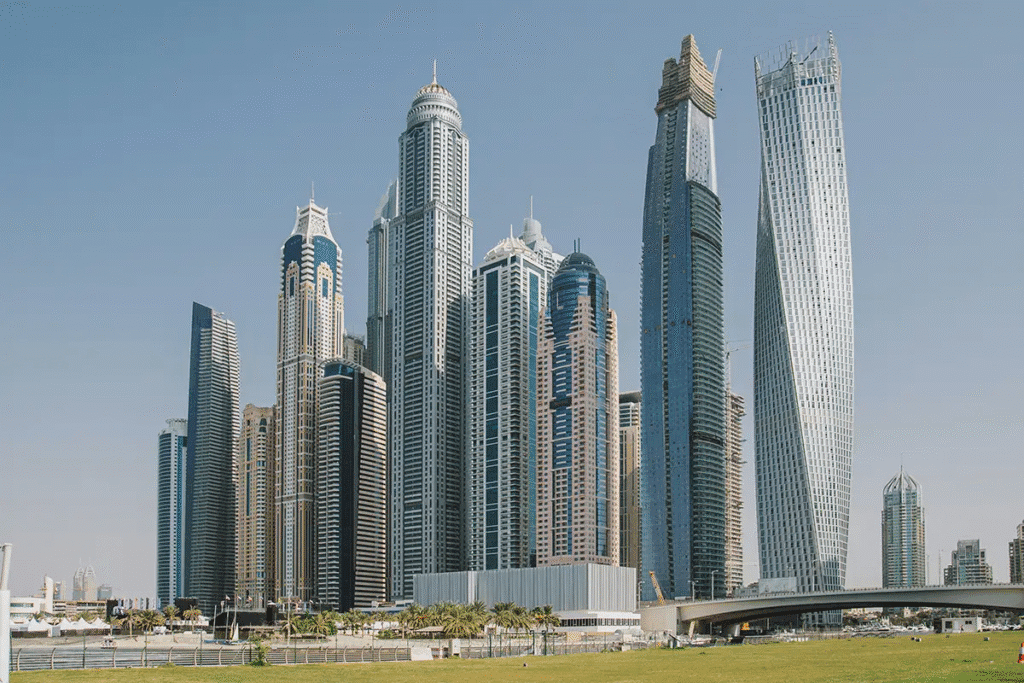Dubai property market is showing remarkable resilience as it navigates what is traditionally considered a slow summer period. Contrary to expectations, residential sales have risen by 22.7%, while commercial transactions have surged by 31%. This impressive growth reflects the city’s robust real estate sector and strong investor confidence.
Residential Sales See Significant Uptick
Residential properties in Dubai have experienced a notable increase in sales during the summer months. The 22.7% rise in transactions indicates a growing demand for homes and apartments across the city. Buyers are not deterred by seasonal trends, suggesting a strong interest from both local and international investors seeking high-value properties.
Factors contributing to this surge include attractive financing options, favorable market conditions, and continued interest from expatriates looking to relocate or invest in Dubai’s booming real estate. This upward trend signals a stable and promising outlook for residential developers and investors alike.

Commercial Transactions Surge Amid Market Optimism
The commercial real estate segment in Dubai has also witnessed unprecedented growth. A 31% increase in commercial transactions points to renewed confidence among businesses and investors. This growth encompasses offices, retail spaces, and industrial properties, reflecting diverse investment opportunities.
The spike in commercial activity suggests that companies are expanding or establishing new operations in Dubai, driven by the city’s strategic location, business-friendly policies, and strong economic fundamentals. Investors are increasingly drawn to commercial properties as they seek long-term rental yields and asset appreciation.

Key Drivers Behind the Market Momentum
Several factors are fueling Dubai’s property market rise. Firstly, government initiatives aimed at enhancing the city’s real estate infrastructure and investment landscape have played a pivotal role. Regulatory reforms, streamlined property transactions, and investor-friendly policies have created an environment conducive to growth.
Secondly, Dubai’s status as a global hub for trade, tourism, and finance continues to attract international buyers. The city’s cosmopolitan lifestyle, tax advantages, and high-quality infrastructure make it an appealing destination for both residents and investors.
Additionally, limited supply in prime residential and commercial locations has driven up demand, leading to increased transactions and higher property values. This scarcity factor has positioned Dubai’s real estate market as a lucrative opportunity for long-term investment.
Impact on the Real Estate Industry
The surge in property sales has positive implications for Dubai’s real estate industry. Developers are likely to accelerate new projects, while real estate agents and brokers benefit from increased commissions and business activity. Financial institutions offering mortgage and lending services are also poised to gain from higher loan demand.
Moreover, this growth reinforces Dubai’s reputation as a resilient property market capable of weathering seasonal slowdowns. It highlights the city’s ability to attract both end-users and investors consistently, ensuring a steady flow of capital into the real estate sector.

Investor Confidence Remains Strong
Investor sentiment in Dubai’s property market remains robust. High-profile transactions and continued interest from global buyers underscore confidence in the city’s economic and political stability. This trust in the market encourages further investment, which, in turn, sustains property demand and drives market growth.
Investors are particularly optimistic about areas that combine lifestyle amenities with strategic locations. Projects offering integrated residential and commercial spaces, access to transportation hubs, and proximity to key business districts are experiencing higher sales activity.
Future Outlook for Dubai Property Market
Looking ahead, Dubai’s property market is expected to maintain its momentum. Analysts anticipate continued growth in both residential and commercial sectors, driven by strong economic fundamentals, government support, and sustained investor interest.
Developers are likely to focus on delivering high-quality projects that meet evolving buyer preferences, including sustainable designs, smart home technology, and mixed-use developments. This proactive approach is expected to further strengthen Dubai’s position as a leading global real estate hub.
Conclusion
Dubai’s property market has defied typical summer trends, recording a 22.7% rise in residential sales and a 31% surge in commercial transactions. These figures highlight the city’s resilient real estate sector, strong investor confidence, and diverse opportunities across residential and commercial segments. With continued growth on the horizon, Dubai remains a hotspot for property investment and a model of market dynamism.
Do follow UAE Stories on Instagram
Read Next – SAMANA Redefines Arjan Living with Flexible Homes and Private Pools















